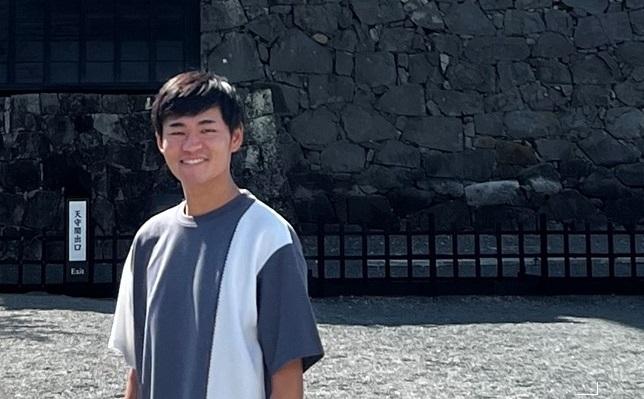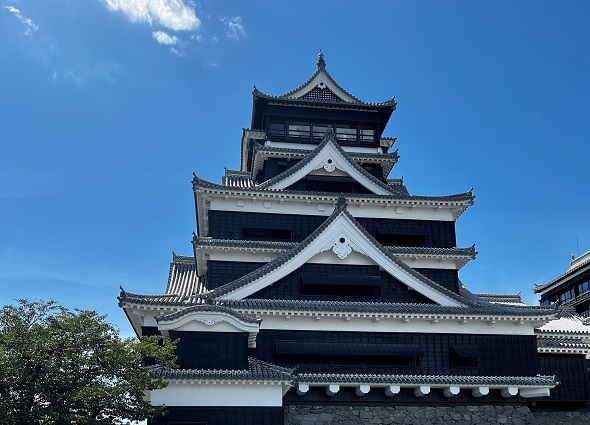
Submitted by Katherine Laidlaw on Wed, 06/09/2023 - 14:15
Andrew Fischer, a PhD student in the Faculty of Asian and Middle Eastern Studies and Harding Distinguished Postgraduate Scholar, was sponsored by Kumamoto University in southern Japan from late July until early September. He was based at the Eisei Bunko Research Centre, where he examined sixteenth-century documents related to the Hosokawa family, the heirlooms of which the Eisei Bunko exists to care for.
The Hosokawa served under the medieval shoguns and the so-called ‘unifiers’ Oda Nobunaga and Toyotomi Hideyoshi during Japan’s Warring States period. The Hosokawa subsequently served as daimyo (regional magnates) of Kumamoto under the Tokugawa shoguns for over two centuries. The current head of the family, Hosokawa Morihiro (born 1938) served as Governor of Kumamoto Prefecture and Prime Minister of Japan during the 1980s and 90s.
During his time in Kumamoto, Andrew was mentored by Professor Inaba Tsuguharu, the head of the Eisei Bunko Research Centre. The Eisei Bunko’s collection features about sixty letters that were issued to the Hosokawa family by Oda Nobunaga (1534–1582), perhaps Japan’s best-known—and most infamous—warlord. Andrew was privileged to be granted access to the only surviving document that scholars can prove was penned by Nobunaga himself (in 1577) as well as several documents that feature Nobunaga’s vermilion seal, which denotes their importance. Most documents issued by figures like Nobunaga were, in fact, not written by the daimyo themselves.
Andrew has also had the honour of meeting the former Prime Minister and his son, the potter Hosokawa Morimitsu (born 1972), who regularly visits Cambridgeshire.

